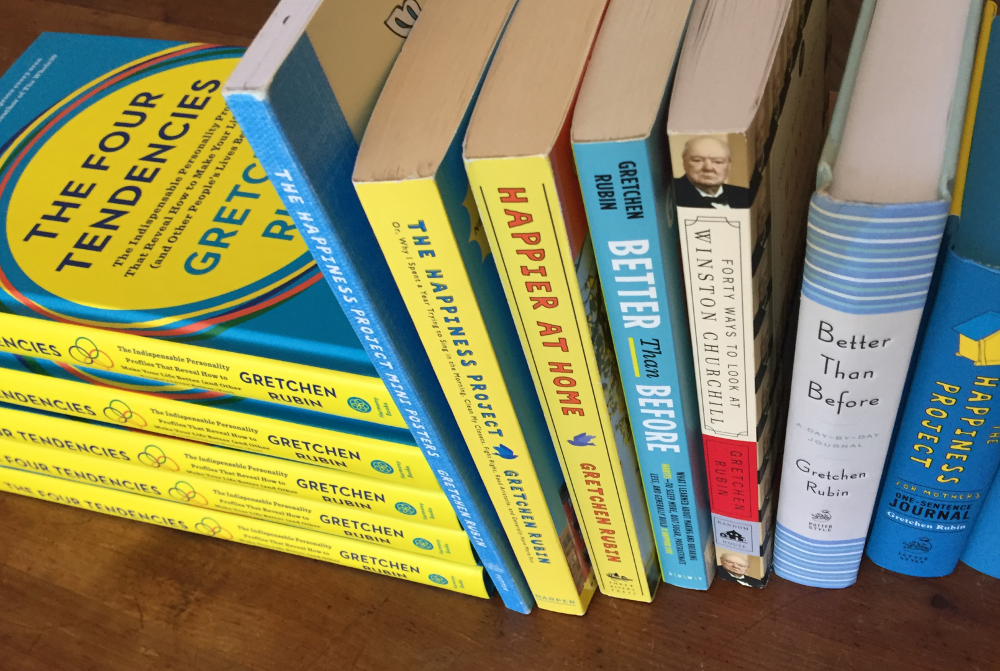
Have you ever sat in a meeting where most of your colleagues have mentally checked out, while a couple of people were still keenly asking questions?
New York Times best-selling author of the Happiness Project Gretchen Rubin tells Verdict this situation, common in most workplaces, has a very simple explanation.

She calls people with a stream of inquiries “questioners” and the mentally checked out are “obligers” — two of the most common character traits out of four coined by Rubin.
The Rubin Character Index splits people into obligers, questioners, rebels, and upholders.
Obligers tend to meet outer expectation without a problem, but often struggle with inner expectations, while questioners, the second most common tendency, are people who only meet expectation if those expectations make sense.
The two less common tendencies are the rebels, who resist expectation and upholders, who respond equally well to inner and outer expectations and the upholders, people who respond readily to both inner and outer expectations.
How well do you really know your competitors?
Access the most comprehensive Company Profiles on the market, powered by GlobalData. Save hours of research. Gain competitive edge.

Thank you!
Your download email will arrive shortly
Not ready to buy yet? Download a free sample
We are confident about the unique quality of our Company Profiles. However, we want you to make the most beneficial decision for your business, so we offer a free sample that you can download by submitting the below form
By GlobalDataMany look for one-size-fits all management techniques, which according to Rubin are often done by a person’s own image.
Rubin tells Verdict:
I’m an upholder and I tend to think it is not up to me to make sure you do your work, I don’t need to be your baby sitter and you should just get it done. Which is not a very helpful way about it for people who need more accountability and justification.
For rebels accountability can be counterproductive.
Let’s say I’m the boss and I am explaining to the company why we are changing company software.
What I will do is say that I am going to explain the change and after certain amount of discussion I’m going to say that if you feel like you know enough about why we made this change please feel free to go back to your desk, if you would like to stay and have me answer more questions please feel free to stay.
This way, not everyone has to sit through a two hour meeting, but also makes sure that the questioners are on board.
Mind the obliger rebellion and don’t think a questioner is undermining
Obligers, who are more accountable, usually thrive in an environment with supervision and deadlines, however they might struggle if they come across a job or move to a career where people are left to their own deadlines and management lacks structure and accountability, according to Rubin.
Watch out for the so-called obliger rebellion, which happens “if obligers feel that it has all become too much, they are likely to quit suddenly or rebel in other ways”.
Rubin says:
Obligers are likely the people who always take on the extra shifts or people who do all the undesirable travel or people who get put on too many projects.
A questioner can easily come across as an undermining colleagues. Rubin explains “there is always a person who once a decision has been made to do something, says how about this how about that”.
People who overwhelm others with questions and seem like they are questioning someone’s judgement because they keep asking you why you are doing the things you are doing.
Questioners in some environments are perceived as trouble-makers, but in some companies they are perceived as most valuable.
So, if you are a questioner you want to get into a place where that is valued.
Workplace efficiency: don’t count on your self-control
Some think that technology and social media have affected our attention span, potentially making our efficiency suffer in and outside of work.
Rubin says to never rely “directly on your will-power or self-control — always use your environment” when trying to form a work habit that will boost your efficiency.
You may need to use a programme, which enables you to shut down access to certain things during the work day, so you cannot get on certain websites.
If you are constantly feeling like you are being pulled to your phone, set your phone on greyscale and you will see your interest in it dramatically diminished. You could have the grey-scale on Monday to Friday and then I’ll have colour on weekends or when not working.
Or you might want to put your phone in an inconvenient place, so if you feel like you need to check your phone you can but it is not in your back pocket. So you have to make a decision to go and get it.
Rubin says that we are “influenced by how convenient or inconvenient things are” and that by making things as inconvenient for yourself as possible the less likely you are to do something.
If you really want to change your work habits, Rubin says the “clean slate” is very effective when you are going through a transition like a new job, a big promotion or relocation.
For example, you can make a rule to never check Facebook at work.
Rubin says:
Another thing is to never log your details, especially for things like shopping, always shop as a guest and never bookmark anything. If you are going to go on that site you are going to have to enter all your details in and your password. If you are going to buy something you are going to have to put your details in.




